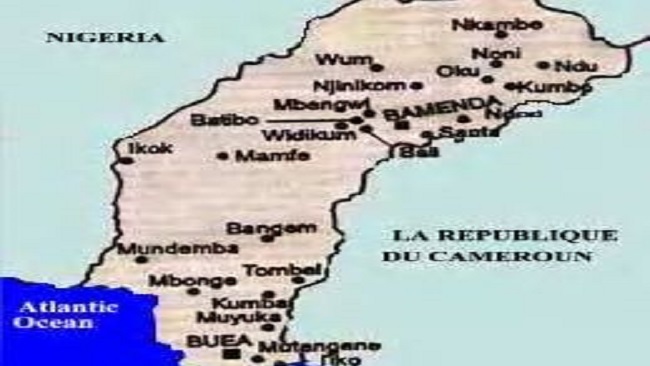UN Southern Cameroons Situation Report March 2022
The cholera outbreak in the South-West region continues to spread. Five health districts are affected with 967 cumulative confirmed cases and 23 deaths as of 31 January
Two attacks on education were reported in the NorthWest, and eight teachers were abducted
More than 3,200 schools remain non-functional in the North-West and South-West because of the ongoing crisis
One attack on healthcare in the North-West resulted in the death of a patient
Situation Overview
The situation in the North-West and South-West regions (NWSW) remains tense with continued violence and targeted attacks. The civilian population, as well as health and education providers, continue to face high risks when accessing facilities or when delivering health care and education services. They are continuously facing threats, direct attacks and armed incursions.
Attacks against school staff and educational premises continued. On 19 January, NSAG fighters intruded into the premises of the Government high school of Weh in Menchum division in the NW and abducted five teachers. The incident caused the closure of other schools in Weh. On 26 January, NSAG fighters abducted three teachers at a Government technical college in Keyon, Oku subdivision in the NW.
Some of the violence against civilians in the Fako division happened during the African Cup of Nations (AFCON) tournament that took place between 9 January and 6 February with some teams based in Buea and playing in Limbe in the South-West.
Non-State armed groups (NSAGs) made public statements vowing to disrupt the competition. The most serious incidents took place in the Bwitingi village and the Molyko neighborhood in Buea, both on 12 January. At least two civilians were killed.
The population continued to bear the brunt of violent incidents either targeted directly or being affected by the consequences of IEDs or crossfire. In January, over 3,269 people were forced to flee their homes to seek shelter and safety in nearby bushes, villages and towns. The most affected divisions include Manyu and Meme in the SW, and Donga-Mantung in the NW. These movements are often temporary and displaced persons usually return to their homes once the security situation allows, especially for those who flee to bushes and nearby villages. Also, partners recorded over 750 returnees from Nigeria to Manyu and Bui divisions. According to the returnees, poor living conditions in their host communities led them to return.
The cholera outbreak, first announced in the Ekondo-Titi health district in October 2021, has continued to spread to five health districts. Over 967 cases with 23 deaths have been reported. The response to the outbreak has been limited due to insecurity and limited and often defective road infrastructure. Areas affected by the cholera outbreak in the Ndian division can only be reached by boat.
Humanitarian actors continued to operate under numerous constraints. Demands for illegal payments by both State and nonState actors, repeated lockdowns announced by NSAGs, diversion of humanitarian aid, and the sustained use of improvised explosive devices (IEDs) by NSAGs in public spaces and main roads frequently used by humanitarians in both urban and rural areas, made delivery of humanitarian assistance and programming very challenging. Insecurity and bureaucratic impediments continue to be major access constraints for humanitarian organizations in the NWSW. On 8 January, a truck with food assistance on board for beneficiaries in Wum, Menchum division was diverted by an NSAG in Bamenda, NW. Also in Bamenda, on 12 January, a NSAG stole a pickup vehicle of an NGO and abducted its staff member. The abducted NGO staff was released the following day and the car was abandoned in Bamenda two days later. Two staff members of a medical NGO remain in custody and under investigation in relation to an incident at a gendarmerie checkpoint in Nguti, SW, in December. Two other staff members were detained in January and potential charges have not yet been specified.
Culled from the UN Office for the Coordination of Humanitarian Affairs





